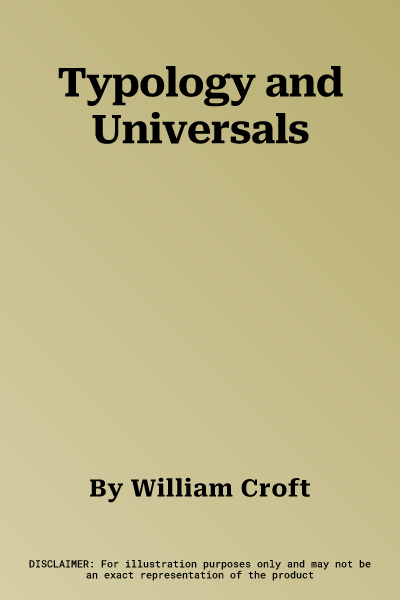William Croft
(Author)Typology and UniversalsHardcover, 25 January 1991

Temporarily out of stock
Free Delivery
Cash on Delivery
15 Days
Free Returns
Secure Checkout

Part of Series
Cambridge Textbooks in Linguistics
Print Length
325 pages
Language
English
Publisher
Cambridge University Press
Date Published
25 Jan 1991
ISBN-10
052136583X
ISBN-13
9780521365833
Description
Product Details
Author:
Book Format:
Hardcover
Date Published:
25 January 1991
Dimensions:
22.81 x
15.19 x
2.49 cm
ISBN-10:
052136583X
ISBN-13:
9780521365833
Language:
English
Location:
Cambridge
Pages:
325
Publisher:
Weight:
607.81 gm